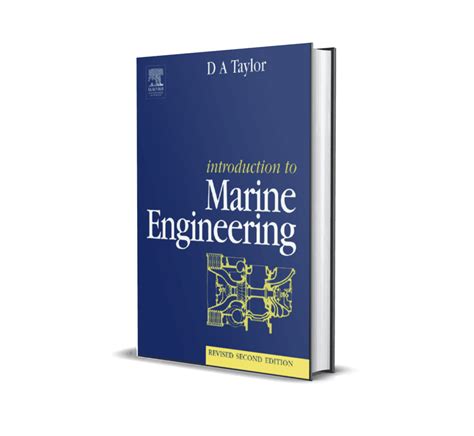The maritime industry is a vital part of the global economy, facilitating the transportation of goods and people worldwide. Ship engineers play a crucial role in ensuring the safe and efficient operation of these vessels. As such, they require a diverse set of skills to effectively perform their duties.

Technical Expertise
1. Marine Engineering:
Ship engineers must possess a thorough understanding of the design and operation of ships, including their propulsion systems, electrical systems, and auxiliary machinery. This knowledge enables them to diagnose and resolve technical issues efficiently.
2. Naval Architecture:
An understanding of naval architecture is essential for ship engineers, including the principles of ship stability, hydrodynamics, and structural integrity. This knowledge ensures that they can assess the seaworthiness of vessels and ensure their safe operation in various conditions.
3. Thermodynamics and Fluid Mechanics:
Ship engineers must be familiar with thermodynamics and fluid mechanics to understand the operation of engines, pumps, and other ship systems. This knowledge allows them to optimize the performance and efficiency of these systems.
Practical Abilities
1. Troubleshooting and Problem-Solving:
Ship engineers often encounter unexpected technical issues at sea. They must be adept at troubleshooting and problem-solving to ensure the smooth and safe operation of the vessel. This involves identifying the root cause of issues and implementing appropriate solutions.
2. Equipment Maintenance and Repair:
Ship engineers are responsible for maintaining and repairing a wide range of equipment on board, including engines, generators, and navigation systems. They must be proficient in handling maintenance schedules, using tools, and performing necessary repairs.
Management Skills
1. Communication and Interpersonal Skills:
Ship engineers work closely with other crew members, including officers, sailors, and technicians. Strong communication and interpersonal skills are essential for effectively coordinating tasks, resolving conflicts, and maintaining a positive work environment.
2. Leadership and Decision-Making:
Ship engineers often hold positions with leadership responsibilities, requiring them to make critical decisions that may impact the safety and operation of the vessel. They must be capable of leading teams, motivating others, and taking decisive action in emergencies.
Industry Regulations
1. Statutory and Regulatory Compliance:
Ship engineers must be familiar with the various national and international regulations governing the maritime industry, including safety standards, pollution control, and vessel certification. Compliance with these regulations ensures that vessels operate safely and meet environmental requirements.
2. Industry Best Practices:
In addition to statutory regulations, ship engineers must also be aware of industry best practices and guidelines for vessel maintenance, operation, and safety. Adhering to these best practices helps improve efficiency, reduce risks, and enhance the overall performance of the vessel.
Other Important Skills
1. Physical Fitness and Endurance:
Working on a ship can be physically demanding, requiring engineers to be in good physical condition. They must be able to work in confined spaces, climb ladders, and perform tasks in extreme weather conditions.
2. Emergency Response and Safety Procedures:
Ship engineers must be well-versed in emergency response procedures and safety protocols. They play a vital role in ensuring the safety of crew members, passengers, and the vessel in case of any incidents or emergencies.
Training and Certification
Formal training and certification are essential for ship engineers to acquire the necessary skills and knowledge.
1. Marine Engineering Degree:
A bachelor’s or master’s degree in marine engineering or a related field provides a solid theoretical foundation for ship engineering.
2. Professional Certifications:
Professional organizations such as the Institute of Marine Engineering, Science & Technology (IMarEST) offer various certifications for ship engineers, including Chief Engineer, Second Engineer, and Third Engineer. These certifications demonstrate competence and experience in specific areas of marine engineering.
Conclusion
Ship engineers play a vital role in the safe and efficient operation of vessels, requiring a diverse set of skills spanning technical expertise, practical abilities, management skills, and industry knowledge. By possessing these skills and adhering to industry regulations, ship engineers ensure the smooth and successful operation of ships, facilitating global trade and transportation.
Additional Information
Useful Tables:
| Table 1: Key Technical Skills for Ship Engineers |
|—|—|
| Skill | Importance |
| Marine Engineering | Essential for understanding ship design and operation |
| Naval Architecture | Crucial for assessing ship stability and seaworthiness |
| Thermodynamics and Fluid Mechanics | Important for optimizing system performance and efficiency |
| Table 2: Practical Abilities for Ship Engineers |
|—|—|
| Skill | Importance |
| Troubleshooting and Problem-Solving | Vital for resolving technical issues at sea |
| Equipment Maintenance and Repair | Necessary for maintaining and repairing ship systems |
| Table 3: Management Skills for Ship Engineers |
|—|—|
| Skill | Importance |
| Communication and Interpersonal Skills | Essential for effective teamwork and conflict resolution |
| Leadership and Decision-Making | Required for guiding teams and making critical decisions |
| Table 4: Important Additional Skills for Ship Engineers |
|—|—|
| Skill | Importance |
| Physical Fitness and Endurance | Necessary for handling demanding physical tasks |
| Emergency Response and Safety Procedures | Crucial for ensuring safety in emergencies |
